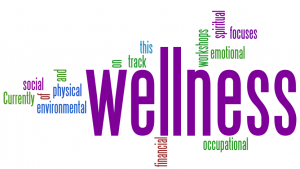 Did you know the first full week in April — April 7 to 11th — is National Workplace Wellness Week? No, that’s not a late April Fool’s joke — it’s a real resolution that was initiated by the American Heart Association and passed by the House of Representatives.
Did you know the first full week in April — April 7 to 11th — is National Workplace Wellness Week? No, that’s not a late April Fool’s joke — it’s a real resolution that was initiated by the American Heart Association and passed by the House of Representatives.
I think this resolution highlights something that most people take for granted: the interdependence between your career success and your overall health and happiness in life.
Here is some of the wording of the bill:
“Whereas comprehensive, culturally sensitive health promotion within the workplace is essential to maintain and improve United States workers’ health, as a significant part of a working citizen’s day is spent at work;
Whereas employees who improve their health reduce their probability of chronic health conditions, lower their out-of-pocket medical and pharmaceutical costs, reduce pain and suffering, have greater levels of energy and vitality, and experience increased satisfaction with their lives and jobs …”
As I blogged about before, more and more corporations are starting wellness programs in the workplace — recognizing the benefits to their bottom line: happy and healthy workers are productive, successful employees.
What is workplace wellness? Is it just being happy at your job? Or doing work that you like? Or, is it working in nice conditions? If that was the case, then finding your dream job or getting that big raise or corner office might lead to wellness, but I’m going to suggest that workplace wellness is dependent on a multitude of factors — three of which fall squarely under professional development …
Three Professional Development Factors That Impact Workplace Wellness
- Attitude: This is the biggie, because with a good, open attitude of accountability and a desire to keep learning and growing, many things are possible that would otherwise be impossible. Your attitude colors your interactions, the events that occur during any given day, your reactions to those events, and how you deal with both opportunities and setbacks.
- Communication skills. You might be surprised to hear me say that people’s ability to communicate can affect their degree of wellness. But, if you have trouble speaking up at work, if you have trouble making your expertise known and your ideas heard, if you frequently get into conflicts with coworkers, clients, or managers and do not know how to handle them effectively … well, the stress level from these things is pretty high! Learning to effectively communicate your beliefs, feelings, ideas, and expertise will automatically lead to new opportunities, strengthened relationships, less stress, and a greater feeling of satisfaction on the job.
- Leadership skills: Like strengthening your communication skills, improving your leadership qualities will greatly add to your job satisfaction and opportunities.
Imagine how changing your attitude for the better can affect not just your career but also the rest of your life…
Imagine how learning to more effectively communicate will affect all of your interpersonal relationships…
Imagine how building leadership skills will impact every aspect of your life for the better…
Wellness, indeed!
